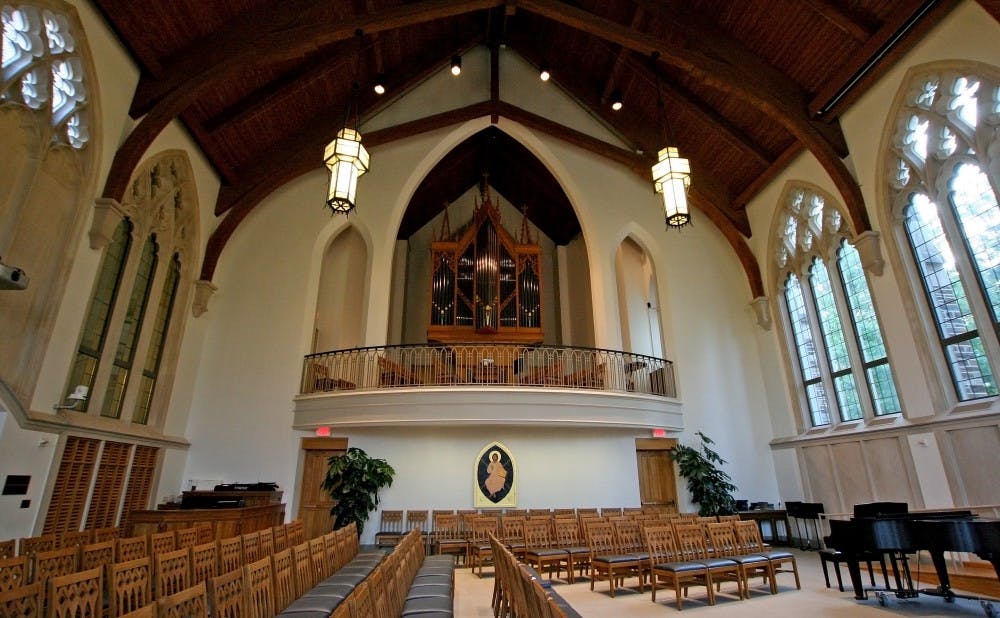Since his papacy began on March 13, Francis has exhibited multiple departures from the practices of his predecessors, such as wearing simpler vestments with little ornamentation, living outside of the papal apartments of the Apostolic Palace and allegedly leaving the Vatican at night to minster to the homeless.
At the end of November, Francis released an extensive proclamation—called the Evangelii Gaudium—outlining many of his goals for the Catholic Church, including a decentralization of power in the church. Director of the Duke Catholic Center Michael Martin explained that this implies the pope wants to involve countries’ bishop conferences in having more authority inside the church, reducing the amount of sovereignty carried by the Vatican.
“What he is trying to say is… to make sure those lines of communication are open so he can hear what is going on around the world, and not be as isolated from those voices,” Martin said.
The call for decentralization is part of a larger effort by the pope to reach out to the 1.2 billion Roman Catholics in the world. Paul Griffiths, Warren Professor of Catholic theology, noted that the pope has made specific changes to his own practices and operations—such as his dress and daily activities—but noted that more importantly, he is also instilling a new mindset worldwide.
“He seems to be trying to change the priorities of the Church,” Griffiths said. “He’s trying to make [his top priority] into care for the poor and welcoming attitudes for everybody rather than judgment and opposition.”
Griffiths pointed to the debate over Amendment One—a 2012 North Carolina statute that changed the state’s constitutional definition of marriage to be between one man and one woman. Catholics and Catholic organizations around the state acted in support of the amendment, he said.
Griffiths noted that in the wake of Francis' papacy, Catholics may shift their energies to focus on advocating for the poor, for example, rather than fighting against other ideologies.
Although N.C. Catholics' position on LGBTQ issues and others that are similarly controversial—such as immigration—may not have changed, Griffiths emphasized that the ideology Francis is teaching will encourage other Catholics to approach issues with acceptance and compassion.
“Local bishops will be active about different things,” he said. “There will be changes, but when they happen and how they happen are much harder to say.”
Catherine Preston, campus minister for faith formation at the Catholic Center, summarized Francis’ perspective as one that emphasizes mercy and the human experience, more so than that of his predecessors.
“We understand Christ is both human and divine, and we have to make sure we talk about both those things together,” she said. “Pope Francis has a heart and gift in articulating Jesus close to us in our humanity.”
Preston noted the Center has changed its curriculum to include what Francis has been focusing on, including reviewing his interviews and documents, holding Skype sessions with people in Rome and altering the content of the teaching sessions held on campus for Catholic students.
“It has certainly affected the things we think about,” she said. “Pope Francis is speaking about and people are very interested in social justice. We adjusted a bit of our teaching because of that.”
Martin also noted that the Catholic Center does programming that concretely addresses social justice issues and also hosts informal conversations on the pope’s relevance.
He emphasized that the section of the Evangelii Gaudium on economics is also relevant, especially in the United States. In the document, Francis criticized capitalism and the concept of “trickle-down economics” as benefiting a few and neglecting masses.
“Take the current models of economics and bring to those models the values, the human person and the dignity of the human,” Martin said is the core of Francis’ argument. “There’s some folks saying it’s socialist. I don’t think that’s the case at all.”
Martin said that the most important issues for Catholics in different countries vary from economics to more social issues. The general mindset and universal values the pope is articulating, though, reaches all Catholics globally.
“They say politics is local—well, you can say religion is local. We’re part of something much bigger,” Martin said. “The challenge is how we respond to [Francis] 1,000 miles away.”
Get The Chronicle straight to your inbox
Signup for our weekly newsletter. Cancel at any time.

